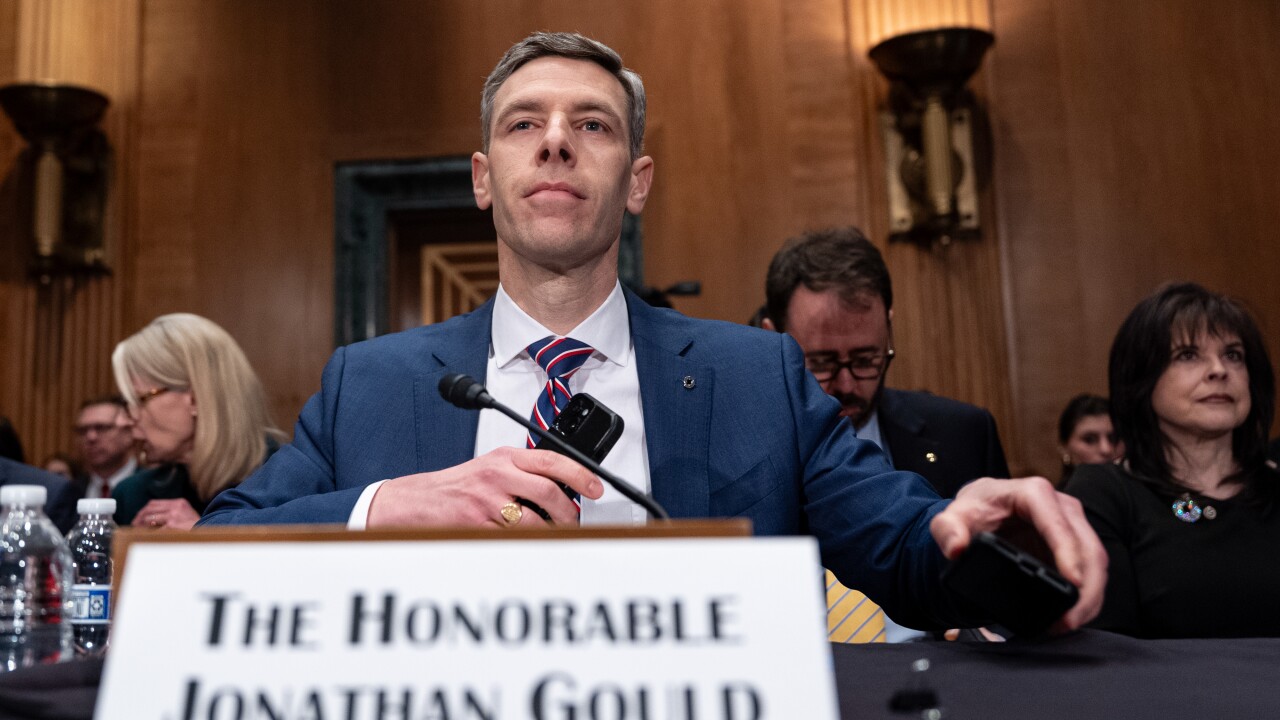Right now, the government is at risk for an increased share of the reduced amount of residential mortgages that are being produced. This is another damnable result of the recent crisis. No proposed remedy for it has attracted much support. I'll suggest alternatives.
Now is the time to establish a more worthwhile and resilient government role in housing finance.
The run up to the crisis illuminated what needs to change. Among the substantial causes of the bubble were cash-out refinancings, mortgages taken by owners of more than one home (including speculators), sham owners and piggyback mortgages. Such mortgages also greatly complicate mortgage servicing and resolution.
Why should taxpayers pay or risk even $1 towards any such transactions? All of them egregiously fed the bubble by increasing demand for houses at rising prices. Let's not promote that stuff any more.
Many say it isn't fair for an owner to lose money on his home investment — even if he didn't even make any cash investment! But these intensely interested parties don't seem to mind letting owners take out appreciation as it occurs — bringing their investment down to zero, blowing up bubbles and making it almost inevitable that the house will end up underwater.
Stop it.
Tax cash-out refinances at the point of origination, requiring the lender to collect the tax. The excise rate could go as high as 50% or 90%, depending on period of ownership and loan-to-value ratio. (Banks already withhold some other taxes for the IRS.) The proceeds of this tax could be placed in a separate home price stabilization fund, to be used to help underwater owners in the event of a subsequent price decline. This would greatly reduce the incentive for speculation in homes, especially if accompanied by a high capital gains rate, such as 100%, on homes turned over quickly.
To avoid government support for owners of multiple homes, piggyback mortgages and sham owners, require accurate reporting of beneficial ownership and all liens and releases to central data sources for home ownership and mortgages — where this information would be available to all. The three major credit bureaus could be these repositories. So could CoreLogic and LPS.
We could then legislate the elimination of MERS, an entity that perversely reduces both transparency and accountability. This will restore needed revenue to local government.
And how about Fannie Mae and Freddie Mac?
The current situation is especially incongruous and unnecessary because, despite a lot of hand wringing about how mortgage rates would go up if taxpayers reduced their subsidies — these rates are currently at historically low levels.
Those who favor resurrecting or recreating the GSE monstrosities quote various figures for how much higher mortgage interest would be in the absence of Federal support. For instance, 80 basis points. So what? Mortgage rates fluctuate by much more than this. We're not hearing too much screaming from those who have to obtain mortgages that fall outside the range of current government involvement.
Offer inducements for homeownership and affordable housing more incisively and selectively through the tax system, where the cost is readily measurable and immediate rather than contingent and hidden.
The present mortgage interest deduction can be converted to a more economical and better-targeted subsidy for homeownership. Credits or deductions could be given to first-time homebuyers, owners of affordable homes, and even to some people who are paying higher interest rates because they could not afford a large down payment—provided they have mortgages with simple and sensible terms. Tax credits could even be given for some reasonable mortgage fees paid in cash.
This would be an appropriate occasion to reduce or end the interest deduction for others. The former deduction for interest on personal loans (even credit cards) was phased out over a period of years without too much pain. The same could be done here, partially or completely. This would reduce the inequity now suffered by those who rent.
If originators (not banks, please!) and investors wish to innovate novel mortgage structures, take on more default risk and slice and dice the resulting paper — then let them do so. If the result is that some consumers again get to live in homes for years without ever paying anything for the privilege, this isn't a catastrophe from which they need a CFPB to protect them.
Just keep taxpayers off the hook for such tomfoolery. Government does not need to own mortgages. It doesn’t need to guarantee mortgages. It needs to use the tax system to incent homeownership more efficiently, while reducing systemic risk.
Andrew Kahr is a principal in Credit Builders LLC, a financial product development company, and was the founding chief executive of First Deposit, later known as Providian. He can be reached at





